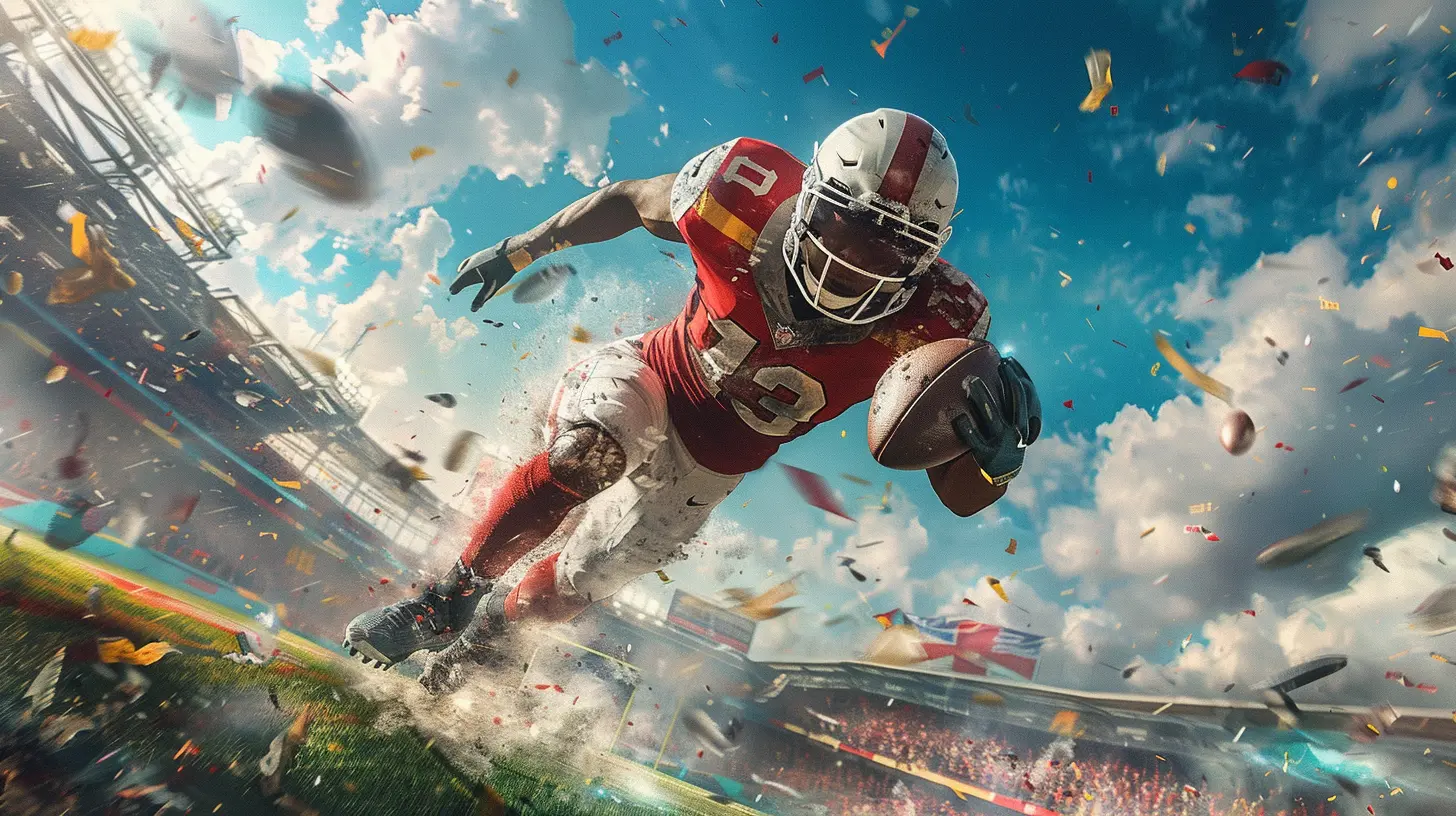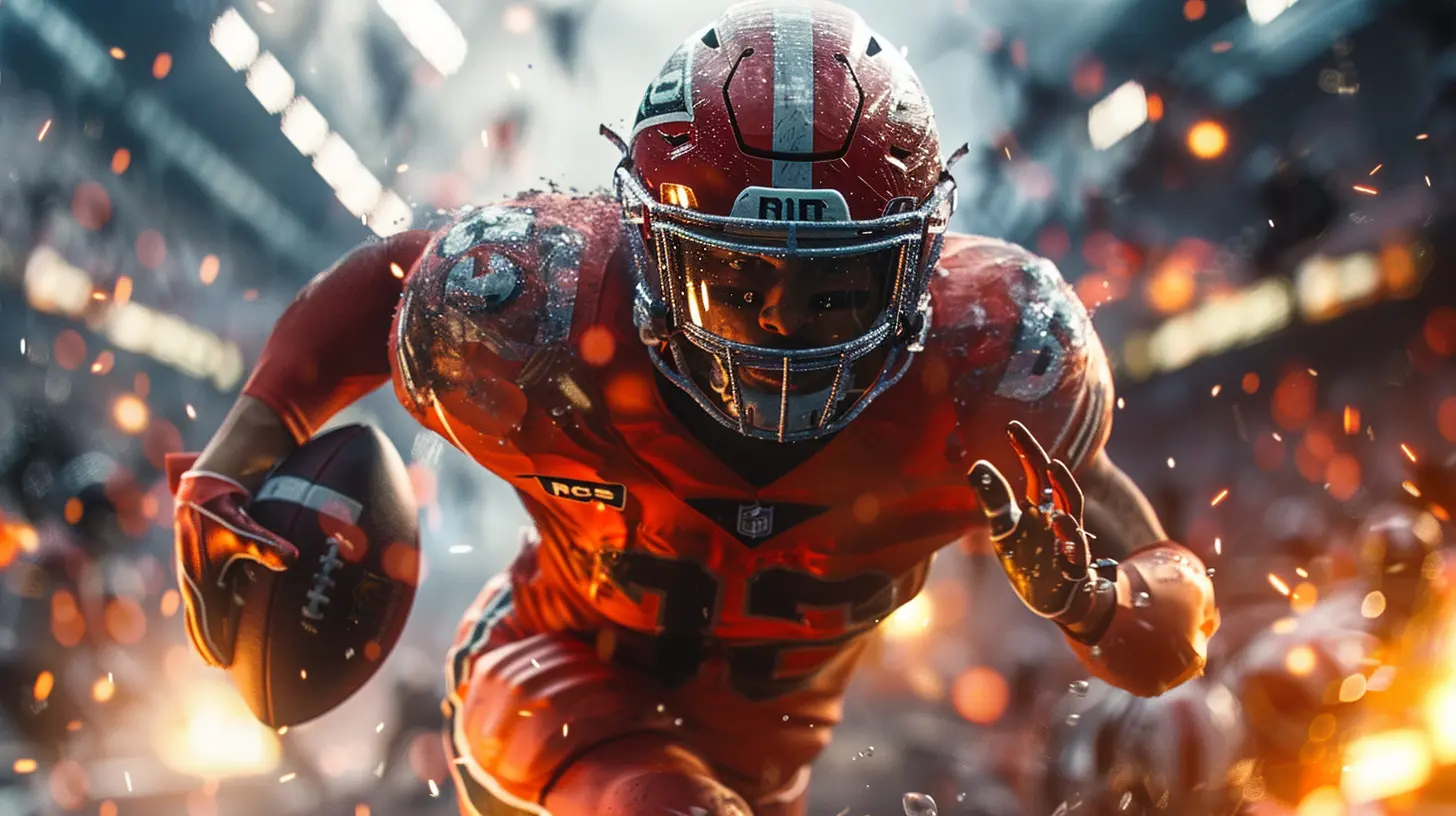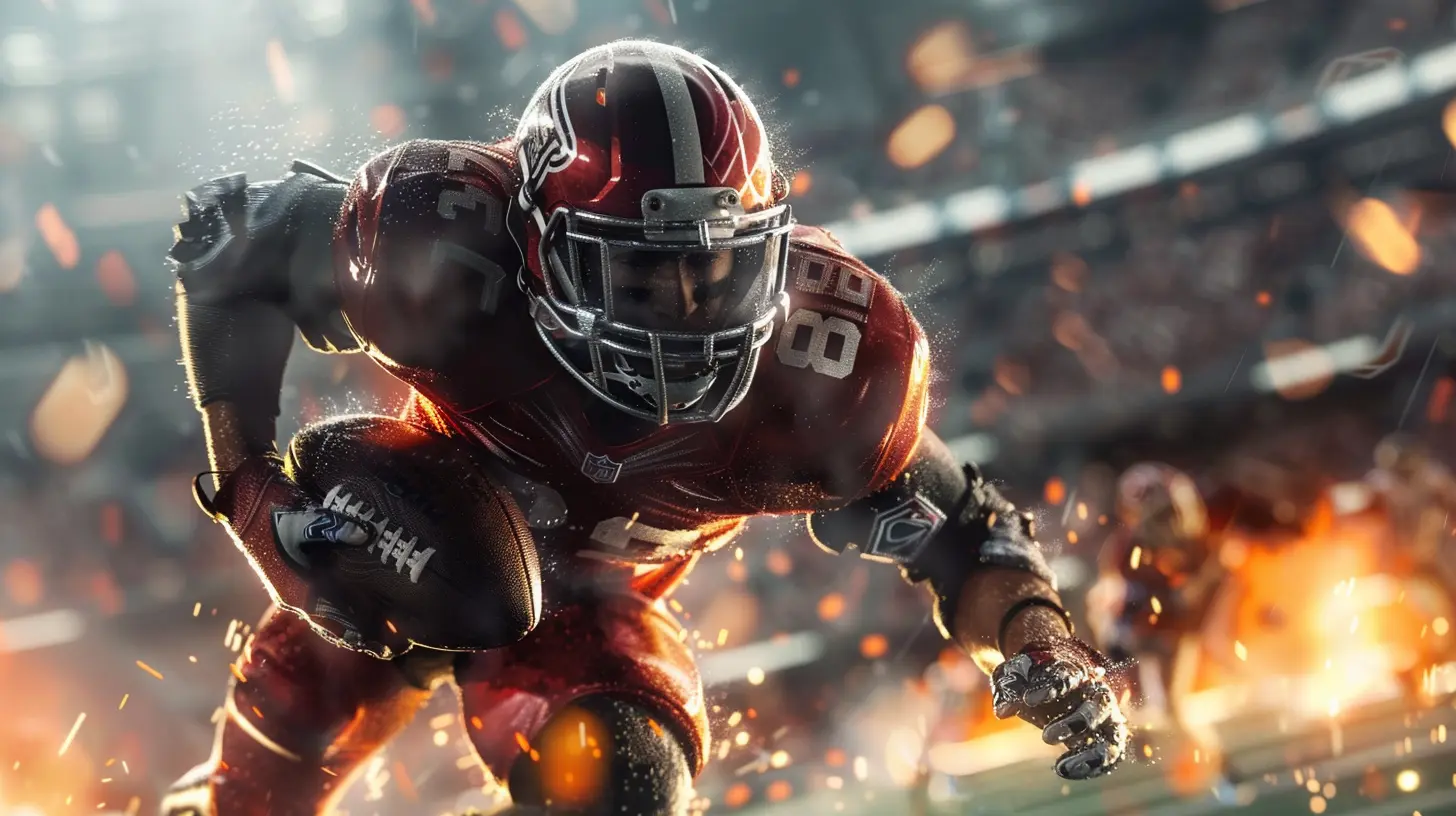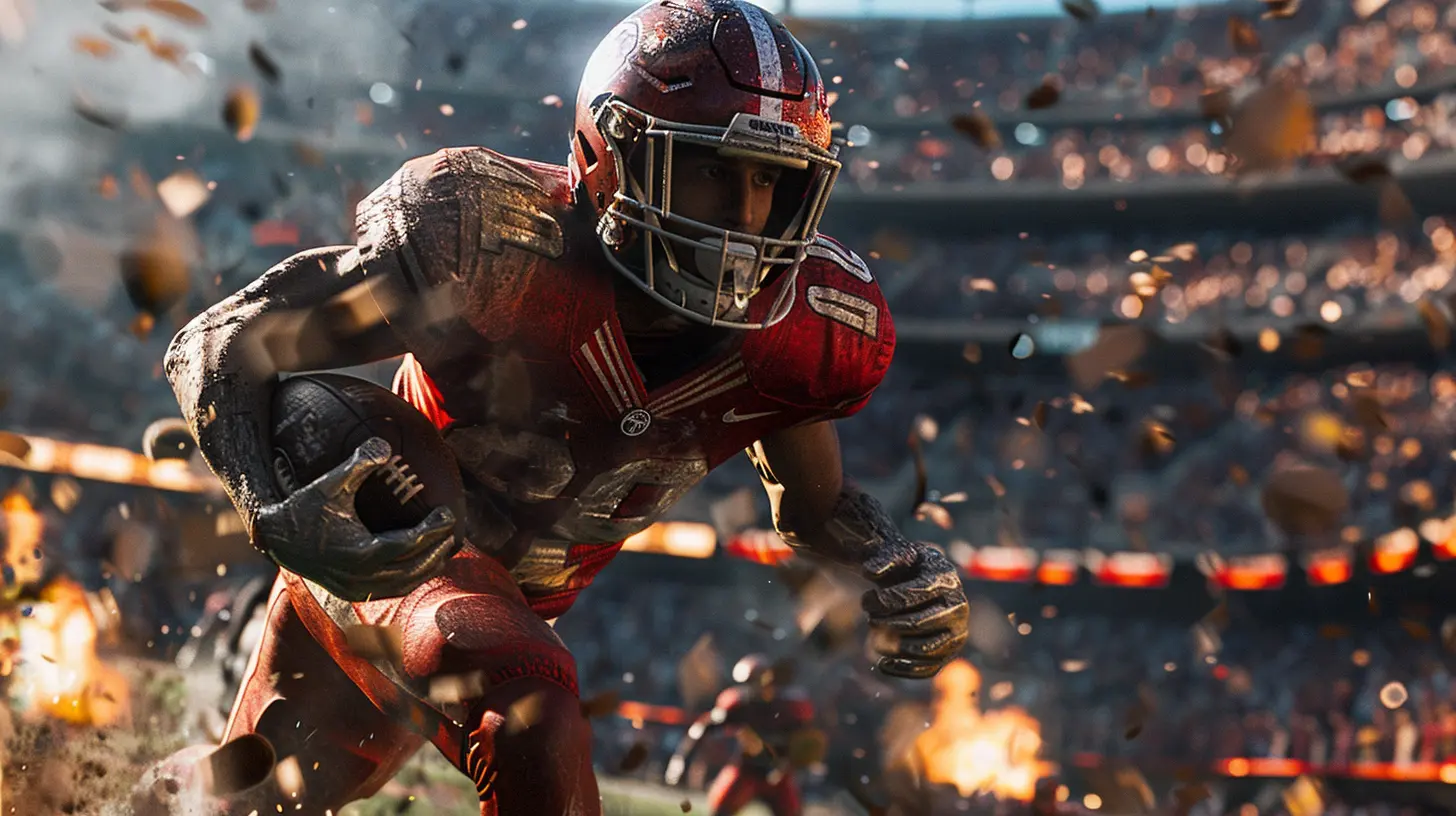17 January 2025
Ever found yourself yelling at your screen because your favorite team in a sports video game isn’t performing like their real-world counterparts? Or maybe you’ve had that one friend who insists the game is rigged against them every single time they lose? Yeah, we've all been there. Sports gaming mechanics, while super fun, tend to be misunderstood, blamed, and sometimes glorified for all the wrong reasons.
Today, we’re diving into the nitty-gritty of sports gaming mechanics to clear the air and, frankly, put some of these wild myths to bed. Strap in, folks—this might challenge how you think about your favorite sports titles!
Myth #1: Sports Games Are Rigged Against Players
Alright, let’s address the elephant in the room. The idea that sports games are conspiring against you is probably the most common complaint out there. You’re leading by two goals, and suddenly your team's AI starts making ridiculous mistakes, or the opposing team turns into unstoppable superstars. Sound familiar?This phenomenon is often referred to as "comeback logic" by gamers. While it’s tempting to believe the game is out to get you, the truth isn’t as sinister. Here's what might actually be happening:
- Dynamic Difficulty Adjustment (DDA): Some sports games do use mechanics that alter the difficulty mid-game to keep things competitive. But here's the kicker—it isn't about punishing you; it’s about making the game more engaging. Let’s face it, would you really enjoy winning every match by 10 points with no challenge?
- Human Error: Let’s be real—when stakes get high, we tend to panic. Missed passes, poor defensive choices, or botched plays are often mistakenly blamed on the game rather than the player.
So, no, your game isn’t “rigged.” It’s just trying to keep things spicy. Instead of shouting at your console, take a deep breath and refocus. Sometimes, it’s just a skill issue (yeah, I said it).
Myth #2: Player Ratings Mean Everything
Oh, how often have we heard this one? People love to think that picking a team with higher-rated players guarantees victory. Spoiler alert: it doesn’t. Player ratings may look like the key to the kingdom, but there’s a lot more going on behind the scenes.Think of it this way: player ratings are like a car’s specs. Sure, a Ferrari might be faster than a Toyota, but give the keys to someone who’s never driven before, and they’ll crash into a lamppost in no time. Similarly, a high-rated player won’t automatically win you matches if you don’t know how to use them effectively.
What’s More Important Than Ratings?
- Skill Over Stats: Your ability to strategize, time your plays, and read the game will always trump raw ratings.- Chemistry Matters: Many sports games, like FIFA, include a “team chemistry” system. If your squad doesn’t gel well together, it doesn’t matter if you’ve got Messi up front.
- Momentum Swings: Games often incorporate intangible factors like momentum, making seemingly weaker players excel in certain scenarios.
Bottom line? Don’t put all your faith in numbers. A better-rated player might look shiny, but it’s your skills that will seal the deal.
Myth #3: Sports Games Are 100% Realistic
This one makes me chuckle every time. People expect sports video games to mirror real life one-to-one, but let’s remember something crucial: it’s a game, not a live broadcast. Sports games are designed to simulate the sport, not replicate every tiny nuance of reality.Here’s why complete realism is impossible (and honestly, kinda boring):
- Gameplay Balance: Real sports can be unpredictable and messy, but games need to prioritize fun. Would you really enjoy a match where the AI goalkeeper spent 90 minutes stalling because that’s what a real-life team might do during a tight match? Didn’t think so.
- Technical Limitations: Even with today’s mind-blowing graphics and physics engines, no game can fully capture the infinite variables of a real match. Weather conditions, player fatigue, crowd influence—it’s just too much to replicate accurately.
- Creative Freedom: Developers often tweak realism for entertainment value. For instance, NBA 2K’s flashy dunks and ankle-breaking dribbles feel more satisfying than the often rigid flow of real basketball games.
Instead of nitpicking every tiny detail, try appreciating the balance game devs strike between realism and fun. After all, do you really want your favorite sports sim to include three-hour VAR delays?
Myth #4: Microtransactions Guarantee You’ll Win
Ah, microtransactions—the bane of modern gaming. If you’ve ever played games like Madden Ultimate Team or FIFA Ultimate Team, you've probably come across players who sink hundreds of dollars into building their "God squads." It’s easy to think that spending cash equals instant wins, but that’s not entirely true.Why Microtransactions Aren’t Everything:
- Skill Matters More: Even if a player opens their wallet and builds an all-star lineup, they still need to know how to play. Without solid gameplay skills, they’re just someone with a Ferrari who doesn’t know how to drive (yup, I’m using that analogy again).- Luck Plays a Role: Many microtransaction-based systems rely on randomized packs. Spending money doesn’t guarantee you’ll get the players you want, which can frustrate even the biggest spenders.
- Meta Changes Constantly: Sports games are notorious for shifting “meta” gameplay strategies with regular updates. That dream team you paid for? Might not be so OP (overpowered) after the next patch.
So, while microtransactions might give you a slight advantage, they don’t guarantee victory. Save your cash—practice and passion are still free.
Myth #5: The AI Cheats
This one’s a hot take for sure. If you’ve ever lost to the AI and cried, “No way that was fair!” you’re not alone. But before you throw your controller across the room, let’s unpack this myth.Yes, AI in sports games sometimes feels like it’s on steroids. But no, it’s not “cheating.” What you’re experiencing is likely the result of how the AI is programmed:
- AI Predictability: The AI follows coded behaviors, meaning it doesn’t actually “think” like a human. If it seems too perfect, it’s because the developers designed it to capitalize on gaps in your strategy.
- Higher Difficulty Settings: On harder difficulties, the AI isn’t smarter—it’s just more efficient. It might move faster, react quicker, or exploit mistakes more ruthlessly. That’s not cheating; that’s just tough love.
- Pattern Recognition: If you repeat the same play over and over, the AI will adapt and counter you. It’s not personal—it’s just code doing what it’s supposed to do.
Rather than blaming the AI, try to understand its patterns and adjust your strategy. Who knows? You might even learn a new trick or two.
Myth #6: All Sports Games Are the Same Every Year
You’ve probably heard this complaint from disgruntled fans: "Why buy the new version? It’s just a roster update!" While it’s true that annual releases like FIFA, Madden, and NBA 2K don’t reinvent the wheel every year, calling them copy-paste jobs is unfair.Here’s what actually changes year to year:
- Gameplay Mechanics: Subtle tweaks to things like ball physics, player movement, and AI behavior make a huge difference, even if they’re not immediately obvious.
- Graphics Upgrades: Player models, stadium details, and crowd animations are constantly being refined to create a more immersive experience.
- New Features: Modes like career, franchise, or story-driven campaigns often get overhauls or additions that add fresh layers of depth.
Sure, not every update is groundbreaking, but writing off an entire game as “the same” just because the improvements are subtle? That’s like saying pizza is always boring because it’s made with the same ingredients. It’s about the details, people!
Conclusion: Take the Myths with a Grain of Salt
At the end of the day, sports gaming mechanics are designed to entertain. They’re far from perfect, but they’re not out to ruin your experience either. The next time someone complains about "comeback logic" or blames the AI for their loss, just smile and nod—you now know better.Sports games, like sports themselves, are about passion, unpredictability, and skill. So stop sweating the myths, and start focusing on what really matters: having fun and nailing that jaw-dropping, last-second game-winner. Game on!









Rowan McCord
Great article! It's refreshing to see common misconceptions addressed so clearly. Understanding the mechanics behind sports games enhances the experience for everyone, whether casual players or dedicated fans. Thanks for sharing!
April 6, 2025 at 3:19 AM